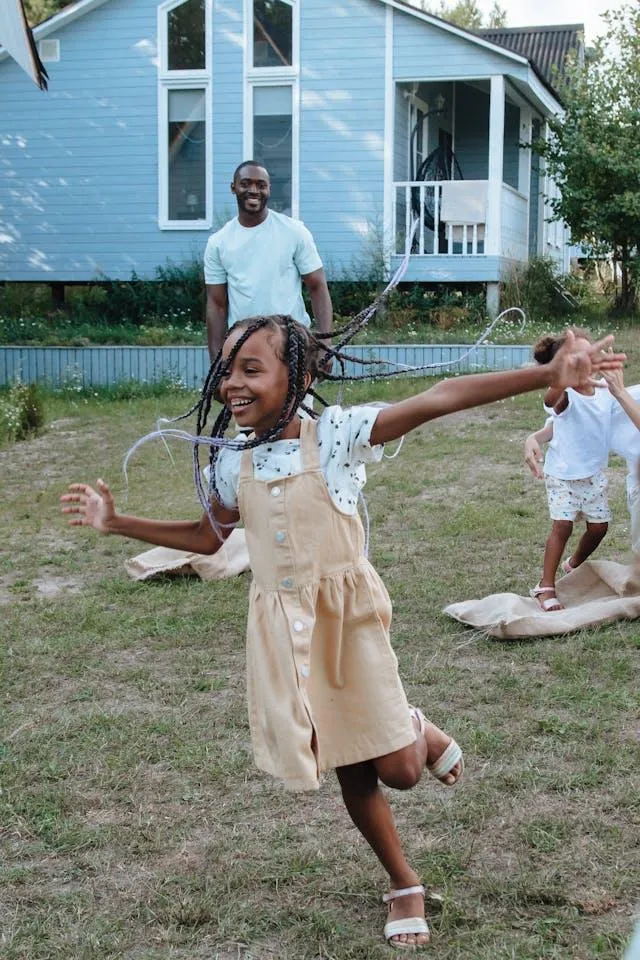Playtime isn't just for kids: unlocking adult joy for mental health

Beyond scientific benefits, the sheer act of playing injects colour into mundane routines, transforming ordinary days into memorable experiences.
Image: cottonbro studio/pexels
What if the secret to better health, less stress, and a happier life wasn’t another productivity hack, but a return to something much simpler: play?
Let's face it, adults are experts at being busy. Deadlines, bills, and endless to-do lists often crowd out the simple pleasures that once filled our days.
But science is clear, play isn’t just for children. It’s a powerful, underrated tool for mental health, emotional resilience, and genuine joy at any age.
Our lives often become stressful as adults due to deadlines and juggling life stressors, explains local registered counsellor Sue-Lee Henning. We forget to take breaks and have fun. Play has been proven to help reduce stress, improve emotional regulation and increase overall life fulfilment.
That’s not just wishful thinking. Research published in "The American Journal of Play" shows that play can boost creativity, sharpen memory, improve mood, and even strengthen social bonds, which are benefits adults need just as much as kids do.
The cost of not playing
Remember how easy it was to lose yourself in fun as a child? Now, compare that to most adult lives today. The difference is startling. Psychologists warn that a lack of play in adulthood is linked to higher stress, burnout, and even depression.
Stagnation; not taking on new challenges or pursuing personal growth can lead to a feeling of being stuck or unfulfilled
We know play helps children develop social and problem-solving skills, but adults who keep playing enjoy similar perks: lower blood pressure, stronger relationships and increased resilience to life’s challenges.
People laugh, they ask questions, they play.

Studies show playful adults cope better with stress and are less likely to feel lonely.
Image: cottonbro studio /pexels
Kids deprived of play often struggle socially and emotionally. Similarly, adults who dismiss play as childish risk chronic stress, reduced creativity and strained relationships.
Why adults should play
You don’t need a toy collection to rediscover play. Adult game nights, board games, trivia, or even silly team-building activities are making a comeback worldwide.
South African adults in metropolitan areas attend monthly game evenings or other fun activities. The end outcome is more connections, laughing, and reduced stress.
Psychologist Dr Stuart Brown, founder of the National Institute for Play, says, “Play is not just an activity, it’s a state of mind"

Play allows adults to process feelings and relieve emotional burdens. Just as children use imaginative play to navigate complex emotions, adults can find healing through creative outlets
Image: Ron Lach/pexels
So, what happens in our brains when we play?
1. Stress relief and better mental health: Stress doesn’t magically disappear when we become adults; it often doubles. A playful mindset can act as a built‑in stress buffer.
Studies back this up: adults who described themselves as playful reported higher life satisfaction and lower levels of perceived stress.
2. Stronger brains and sharper thinking: Play isn’t just fun; it’s brain fuel. Engaging in games or creative hobbies stimulates neuroplasticity, your brain’s ability to form new connections.
According to Brown, adults who regularly play show improved problem‑solving skills and creativity.
Even casual game nights can sharpen attention and memory. Children’s brains thrive on play because it drives curiosity and learning. Adults gain, too: new skills, fresh perspectives and the confidence to experiment without fear of failure.
3. Better social connections: Play breaks down social barriers. Ever noticed how laughing together makes people feel instantly closer? Group games, sports or silly traditions create shared memories and trust.
For kids, play is the natural language of friendship. For grown‑ups, it can rebuild community and spark conversation even among strangers.
“People laugh, ask questions and suddenly, adults turn into children again.”
4. Emotional healing and resilience: Play can heal old wounds and soften life’s sharp edges. Studies show playful adults cope better with stress and are less likely to feel lonely.
Kids naturally process big feelings through imaginative play. Adults often need a conscious nudge, whether it’s painting, storytelling or a backyard game of frisbee, to unlock similar healing benefits.
5. More energy and joy in daily life: Beyond science, play just feels good. It brings colour to routine and makes even ordinary days memorable.
Henning points out: “Many adults feel they can’t ‘waste’ time on fun. But not playing can cost us our mental health.”
One study found that regular play in adults is linked to better mental health and greater life satisfaction.
Making the play part of your everyday life
Here’s how to bring back the magic of play:
- Host a game night: Invite friends over for board games or trivia.
- Try a new hobby: Painting, dancing or building model kits, whatever sparks joy.
- Embrace nostalgia: Dig out an old toy or gadget that once made you smile.
- Let yourself be silly: Play charades, tell jokes or just dance like no one’s watching.
You don’t need a reason or an audience to play. You just need permission from yourself.